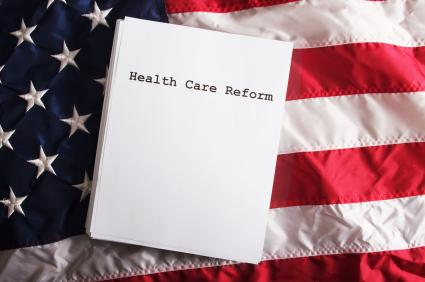New Plans starting on or after Thursday, September 23 Must Implement A Number of Important Health Reforms
Sponsors of group health plans should pay attention to a number of significant reforms to group health coverage that start as early as Thursday, September 23. The Patient Protection and Affordable Care Act ("Affordable Care Act" or "PPACA") mandates certain consumer protections in health plans, effective for plan years that start on or after September 23, 2010, which is six months from enactment of the Affordable Care Act. For calendar year plans, these changes are effective January 1, 2011.
Several of the reforms apply to "grandfathered" plans, which are plans that existed on March 23, 2010. Among the most important changes to all group health plans for plan years starting on or after September 23, 2010- regardless of grandfather status- are the following:
Extend Dependent Coverage Up to Age 26
For plan years starting on or after September 23, 2010, the law requires group health plans that cover dependents to continue to make dependent coverage available until age 26. This rule applies to all plans in the individual market and to new employer plans. It also applies to existing employer plans unless the adult child has another offer of employer-based coverage (such as through his or her job). Beginning in 2014, children up to age 26 can stay on their parent's employer plan even if they have another offer of coverage through an employer.
Prohibit Lifetime Limits
For plan years starting on or after September, 23, 2010, group health plans may not impose lifetime limits on coverage for "essential health benefits."
Restrict Annual Limits
For plan years starting on or after September 23, 2010, group health plans are prohibited from imposing annual limits other than on "restricted" annual limits. Plans issued or renewed beginning September 23, 2010, will be allowed to set annual limits no lower than $750,000. This minimum limit will be raised to $1.25 million beginning September 23, 2011, and to $2 million beginning on September 23, 2012. Beginning in 2014, plans may not impose annual limits on coverage. Waivers for the annual limit rules are available to limited benefit plans. Click here for guidance on the waiver process.
Drop Pre-Existing Condition Exclusions for Children
For plan years starting on or after September 23, 2010, group health plans must not exclude or limit coverage to children under age 19 on the basis of pre-existing conditions. Effective Jan. 1, 2014, group health plans may not impose pre-existing condition exclusions or limitations on adults or children.
No Rescission of Coverage
For plan years starting on or after September 23, 2010, group health plans are prohibited from rescinding a participant's coverage, absent fraud or an intentional misrepresentation of material fact.
Required Changes As Early As September for Non-Grandfathered Plans
The following changes are effective for plan years starting on or after September 23, 2010, for non-grandfathered plans. For more on grandfathered plans, including rules on maintaining grandfathered status, please click here.
Preventive Services without Cost Sharing
For plan years starting on or after September 23, 2010, group health plans that are not considered grandfathered must provide without cost-sharing (deductibles, copays or coinsurance) certain preventive services recommended by the United States Preventive Services Task Force (USPSTF) when delivered in-network. You can view the chart of covered services by clicking here. You can also view a list of covered services for adults, women (including pregnancy) and children by clicking here. The interim final regulations on preventive services under the Affordable Care Act are available here.
Internal Appeals
Under the new rules, new health plans beginning on or after September 23, 2010 must have an internal appeals process that:
• Allows consumers to appeal when a health plan denies a claim for a covered service or rescinds coverage;
• Gives consumers detailed information about the grounds for the denial of claims or coverage;
• Requires plans to notify consumers about their right to appeal and instructs them on how to begin the appeals process;
• Ensures a full and fair review of the denial; and
• Provides consumers with an expedited appeals process in urgent cases.
External Review
New rules require plans to provide external reviews that meet standards set by the National Association of Insurance Commissioners.
**For more on health care reform, including required changes to group health plans after 2010, please contact us by clicking here.



